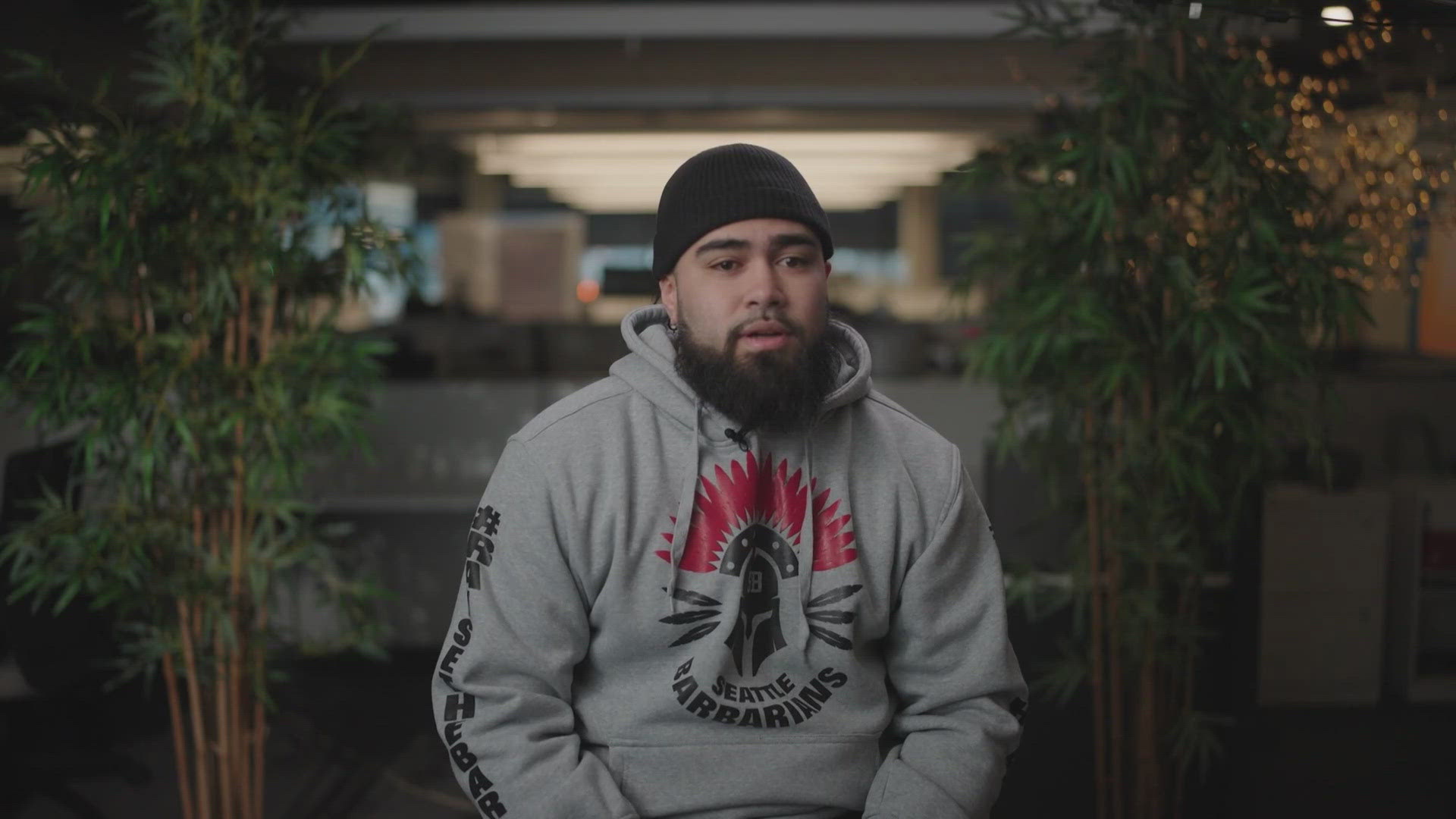SEATTLE — May is Asian American, Native Hawaiian and Pacific Islander (AANHPI) Heritage Month - a time to reflect on and celebrate the contributions that AANHPI residents have made to American history, society and culture, according to the Federal Asian Pacific American Council.
The term "Pacific Islander" encompasses dozens of unique ethnicities and cultures belonging to the peoples of Polynesia, Melanesia and Micronesia - regions that encompass thousands of islands each. There are estimated to be 1.6 million people of Native Hawaiian and Pacific Islander descent living in the United States, according to the most recent census data.
Local residents of Native Hawaiian and Pacific Islander heritage spoke to KING 5 about what they want people to know about their culture.
'I'm super proud to be Samoan'
Glendal Tautua's family is from the island of Samoa.
"It's a small dot in the middle of the South Pacific," Tautua said.
Living in the United States, Tautua said he has noticed some stereotypes about what it means to be a Pacific Islander - which couldn't be further from the truth.
"When I was young, one of the biggest stereotypes was that we are intimidating - I still experience that today," he said. "If I'm in a public space people look at me and feel like I'm unapproachable, when, if they met me, they would know the kind of person I am."
Tautua described a cultural heritage that emphasizes togetherness, celebration and community support.
"Our culture is rich - work hard to stay together for a community that loves to have a good time, loves to stay together, that's continuously looking for ways to support each other."
"I'm super proud to be Samoan," Tautua continued. "It almost feels innate, I've always been Samoan to share the last piece of something, or to give up my seat for an elder"
'We build the table'
Neomai Takai's family is from Tonga.
"I think for Tonga, we're mainly known for being one of the friendly islands," Takai said.
Takai emphasized that to be Tongan is a unique cultural heritage and experience - as it is with all nations and ethnicities that fall under the Native Hawaiian and Pacific Islander umbrella.
"You know sometimes, like, people just ask me, 'Are you Samoan?'" Takai said. "And I just say yes because I don't want to go through with having to explain like what I am, and then explain that it's a completely different island and culture."
For her, her heritage is a source of deep pride.
"If I could have a Tongan flag on my forehead every day, I'd do it," Takai said.
"'What do you bring to the table?' That's something that they ask me," Takai said. "I'm like, Polynesian, Pacific Islander girls, if you want to ask them, 'What do you bring to the table?' We build the table. We are the table."
'Being Pacific Islander means everything'
Shannon Kaopua is from Hawai'i.
"We're happy-go-lucky people," Kaopua said. "We're just big on life. Big heart, big bodies, big minds. We are Pacific."
Kaopua explained the community ties within his culture that bring people closely together - and accepting of others with open arms.
"Cause everybody's your family, everybody knows each other, and regardless they take you in, that is something that I cherish," Kaopua said.
He described broad stereotypes that can impact everyone in the AANHPI community.
"People take us for granted, no matter what ethnicity we're coming from, whether Samoan side, Tongan side, Hawaiian side - they think that we're just thugs," Kaopua said. "Nah- we're not like that. Total heart. When you get to know us, we travel in packs because that's just family values."
Kaopua explained that family is at the heart of many Pacific Islander cultures.
"Being Pacific Islander means everything," Kaopua said. "I am Pacific Islander, I am here. Come see me, I'd love to meet you."

